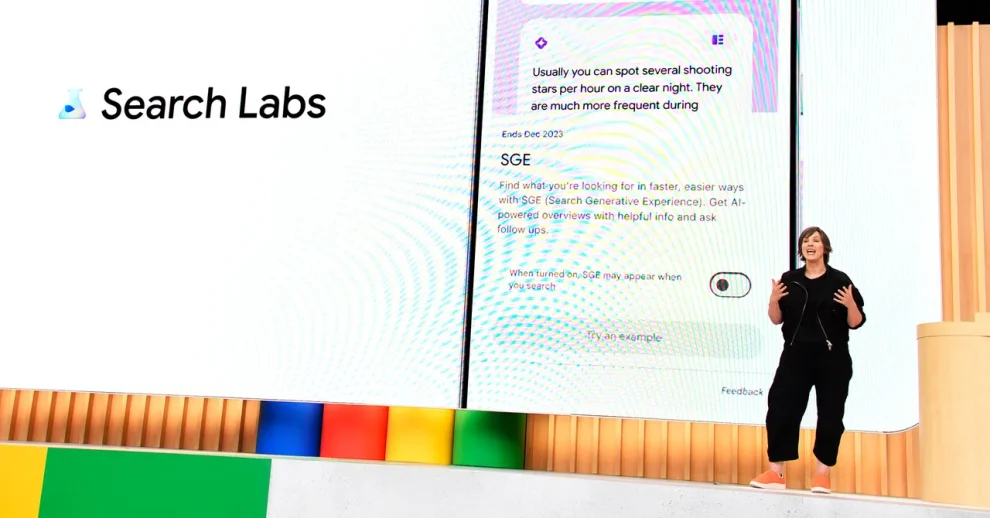The AI Accuracy Dilemma
As LLMs like Google’s Gemini and OpenAI’s ChatGPT become increasingly integrated into real-world applications, the need for factual reliability has never been more critical. Imagine the potential consequences of an AI-powered medical chatbot providing inaccurate health advice or a news aggregator spreading misinformation. In such scenarios, the stakes are incredibly high, and accuracy becomes paramount.
The Hallucination Problem
One of the most significant hurdles facing LLMs is their tendency to generate false or misleading information, a phenomenon known as “hallucination.” This issue stems from the vast and sometimes unreliable datasets used to train these models. The internet, serving as the primary source of training data, contains a mix of factual information, opinions, biases, and outright falsehoods. Consequently, LLMs can inadvertently perpetuate inaccuracies, creating a substantial trust deficit with users.
Google’s Strategic Response: Fact-Checking Alliances
To combat the hallucination problem and enhance the factual grounding of its AI models, Google has announced strategic partnerships with several industry-leading data providers:
- Moody’s: This collaboration brings real-time financial data and expertise to Gemini, enhancing its ability to provide accurate financial insights and analysis.
- Thomson Reuters: By tapping into Thomson Reuters’ vast repository of news articles, legal documents, and market data, Gemini gains access to up-to-date information on current events and legal precedents.
- ZoomInfo: This partnership allows Gemini to leverage ZoomInfo’s extensive business intelligence database, improving its capacity to deliver accurate and relevant information on companies and industries.
A Multi-Faceted Approach to AI Accuracy
While these partnerships form a cornerstone of Google’s strategy, the company is adopting a multi-pronged approach to ensure factual grounding in its LLMs:
1. Advanced Fact-Checking Algorithms
Google is developing sophisticated algorithms designed to automatically identify and flag potentially inaccurate information within the training data. This proactive approach aims to mitigate the risk of biases and factual errors being perpetuated in the LLM’s responses.
2. Human-in-the-Loop Systems
Recognizing the value of human expertise, Google is exploring the integration of human oversight into the LLM’s workflow. This could involve having subject matter experts review and verify the factual accuracy of a sample of LLM-generated responses before they reach end-users.
The Benefits of Grounding AI in Facts
By prioritizing factual accuracy in LLMs, Google aims to deliver several key benefits:
- Enhanced User Trust: As users gain confidence in the reliability of AI-generated information, it fosters trust and encourages wider adoption of LLM technology.
- Improved Decision-Making: Access to accurate, AI-processed information empowers users to make more informed decisions across various aspects of their lives, from financial planning to academic research.
- Reduced Misinformation: By curbing the spread of inaccurate information, LLMs can contribute to a more truthful and reliable online environment.
Navigating the Challenges Ahead
Despite these promising advancements, several challenges remain on the path to achieving consistently accurate AI:
Data Bias
The accuracy of LLMs is intrinsically linked to the quality of their training data. Even the most comprehensive datasets may contain inherent biases that can be reflected in the AI’s outputs. Continuous efforts to identify and mitigate these biases are essential.
Keeping Pace with Change
In our rapidly evolving world, factual information can quickly become outdated. Ensuring that LLMs have access to continuously updated data sources is crucial for maintaining long-term accuracy.
Transparency and Explainability
Building user trust requires more than just accurate outputs. Google must develop robust explainability tools that provide insight into the reasoning behind an LLM’s responses, allowing users to understand and evaluate the AI’s decision-making process.
The Future of AI: A Collaborative Endeavor
Google’s commitment to grounding LLMs in factual accuracy represents a significant step towards a more trustworthy and reliable AI future. The partnerships with data providers, coupled with ongoing efforts to address data bias and improve transparency, pave the way for responsible AI development.
As LLMs continue to evolve and integrate into various aspects of our lives, collaboration across the AI industry will be essential. By working together, tech companies, data providers, researchers, and ethicists can ensure that AI technologies like LLMs become not only powerful but also ethical and trustworthy tools that benefit humanity.
Conclusion: A New Era of AI Reliability
Google’s initiative to enhance the factual accuracy of its LLMs through strategic partnerships and innovative technologies marks the beginning of a new era in AI development. By addressing the critical issue of AI hallucinations, Google is not only improving its own products but also setting a new standard for the entire industry.
As we move forward, the focus on factual grounding in AI will likely intensify, driving further innovations in data verification, bias mitigation, and transparency. For users, this means a future where AI-powered tools can be relied upon as valuable sources of information and assistance across a wide range of applications.
The journey towards perfectly accurate AI is ongoing, but Google’s current efforts represent a significant leap forward. By combining cutting-edge technology with authoritative data sources, we are witnessing the emergence of more reliable, trustworthy, and ultimately more useful AI systems that have the potential to transform how we interact with information in the digital age.
















Add Comment